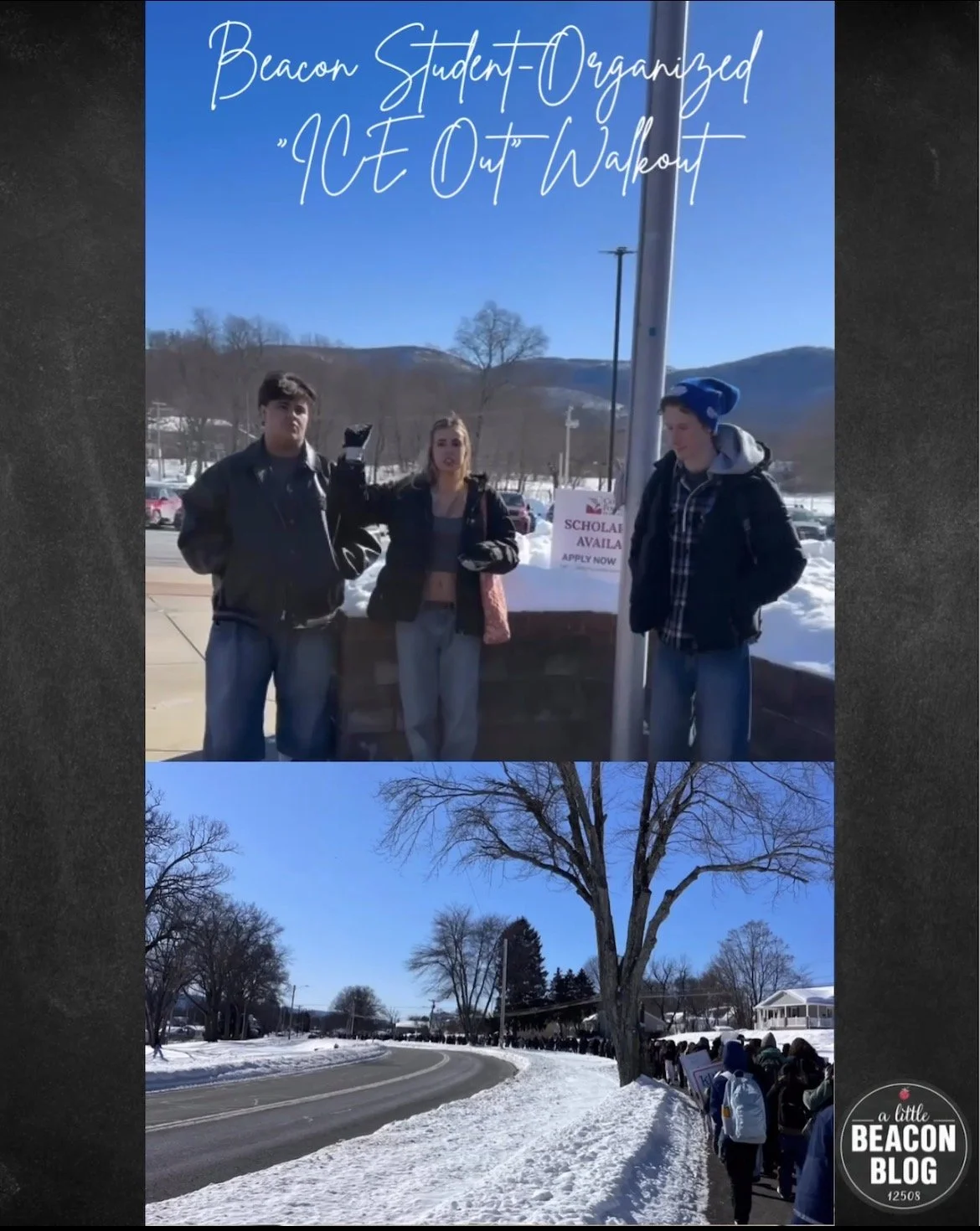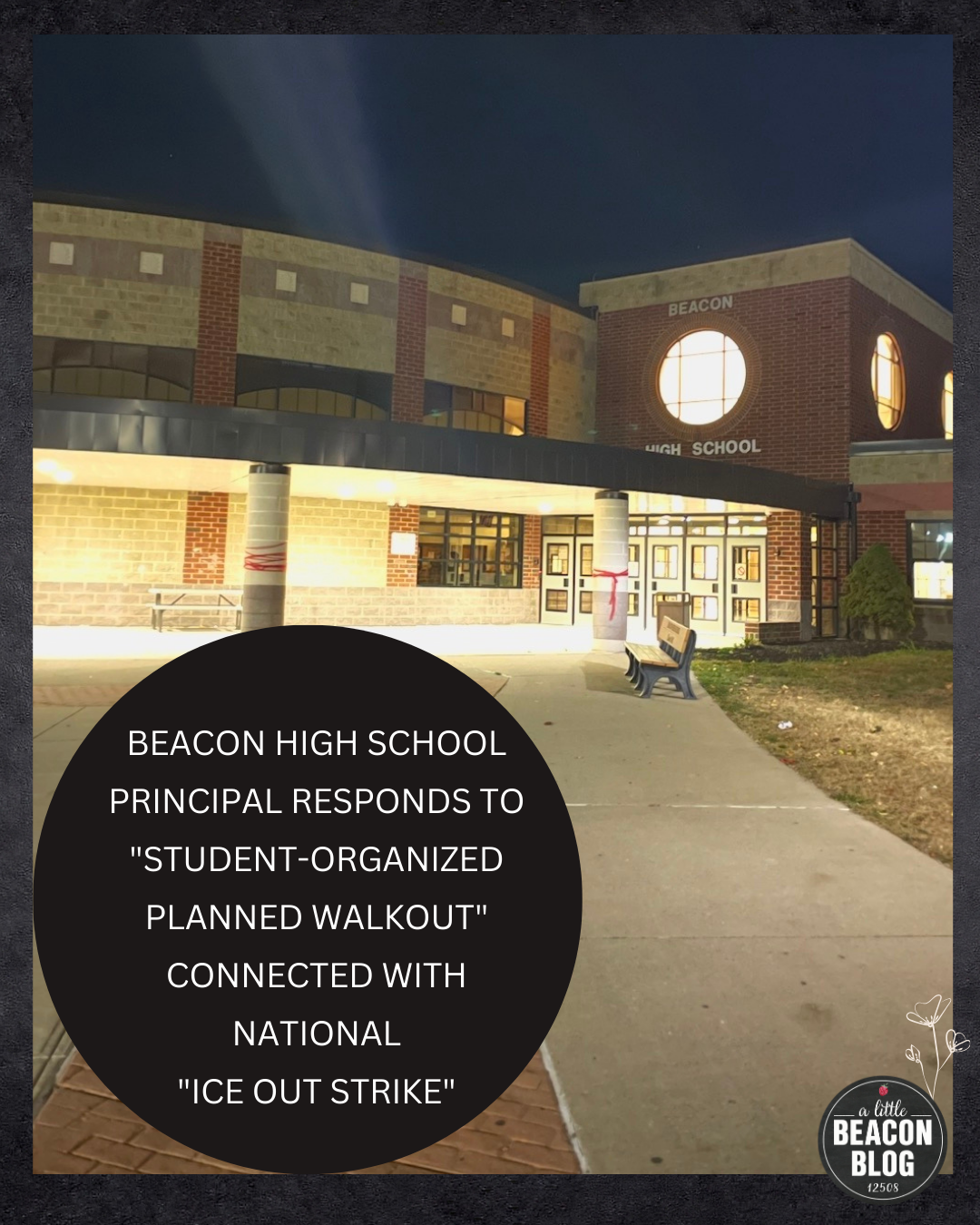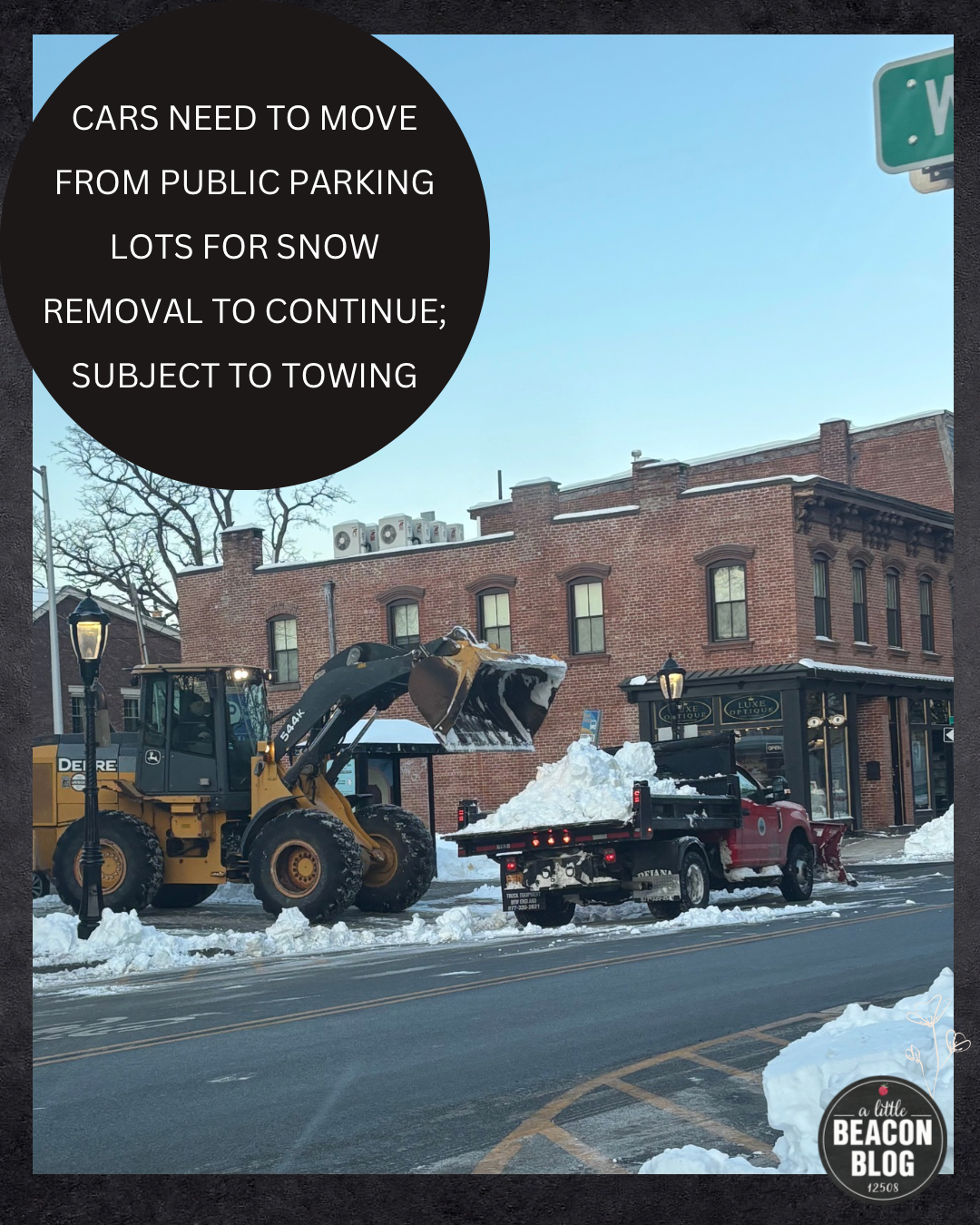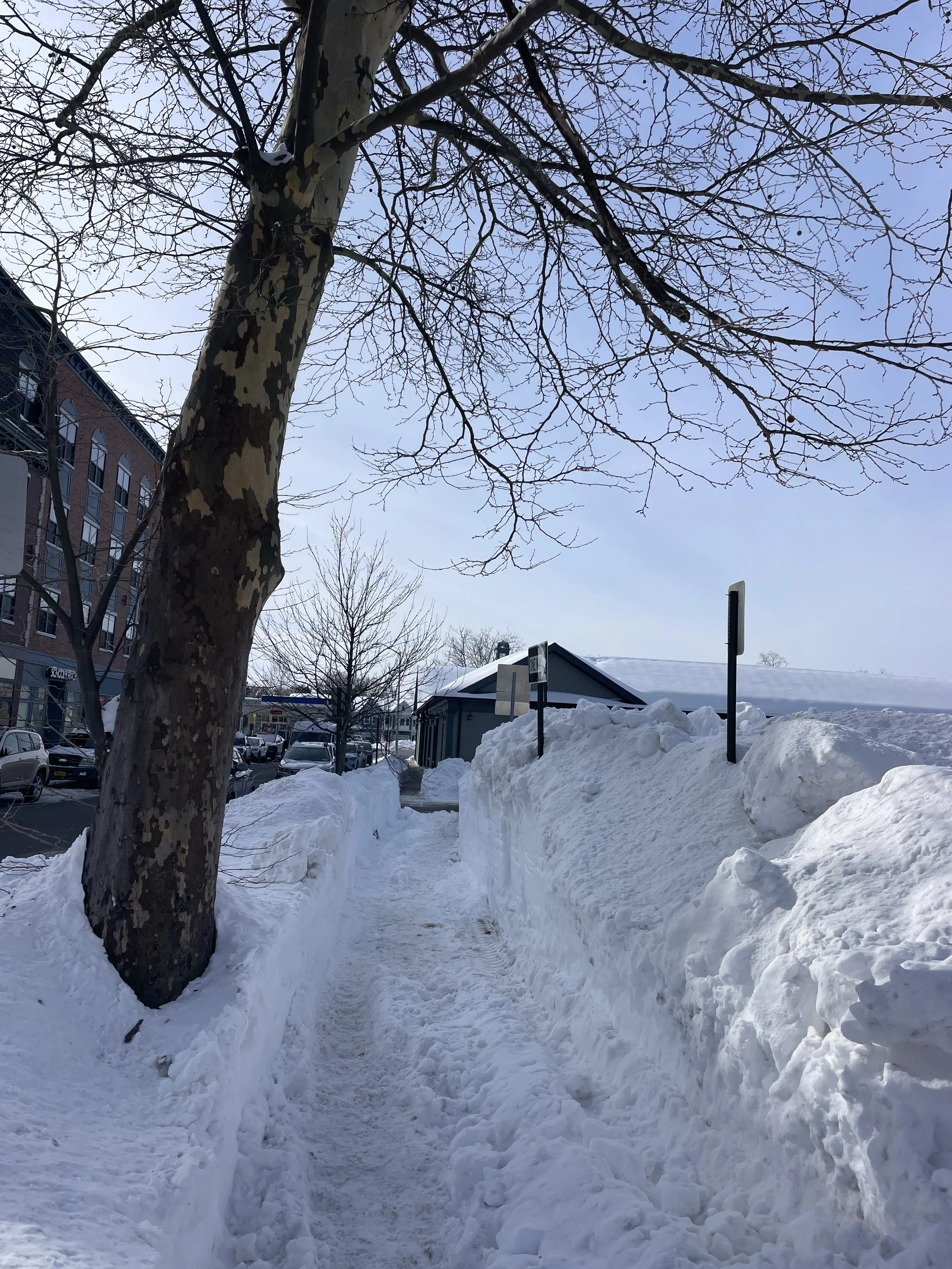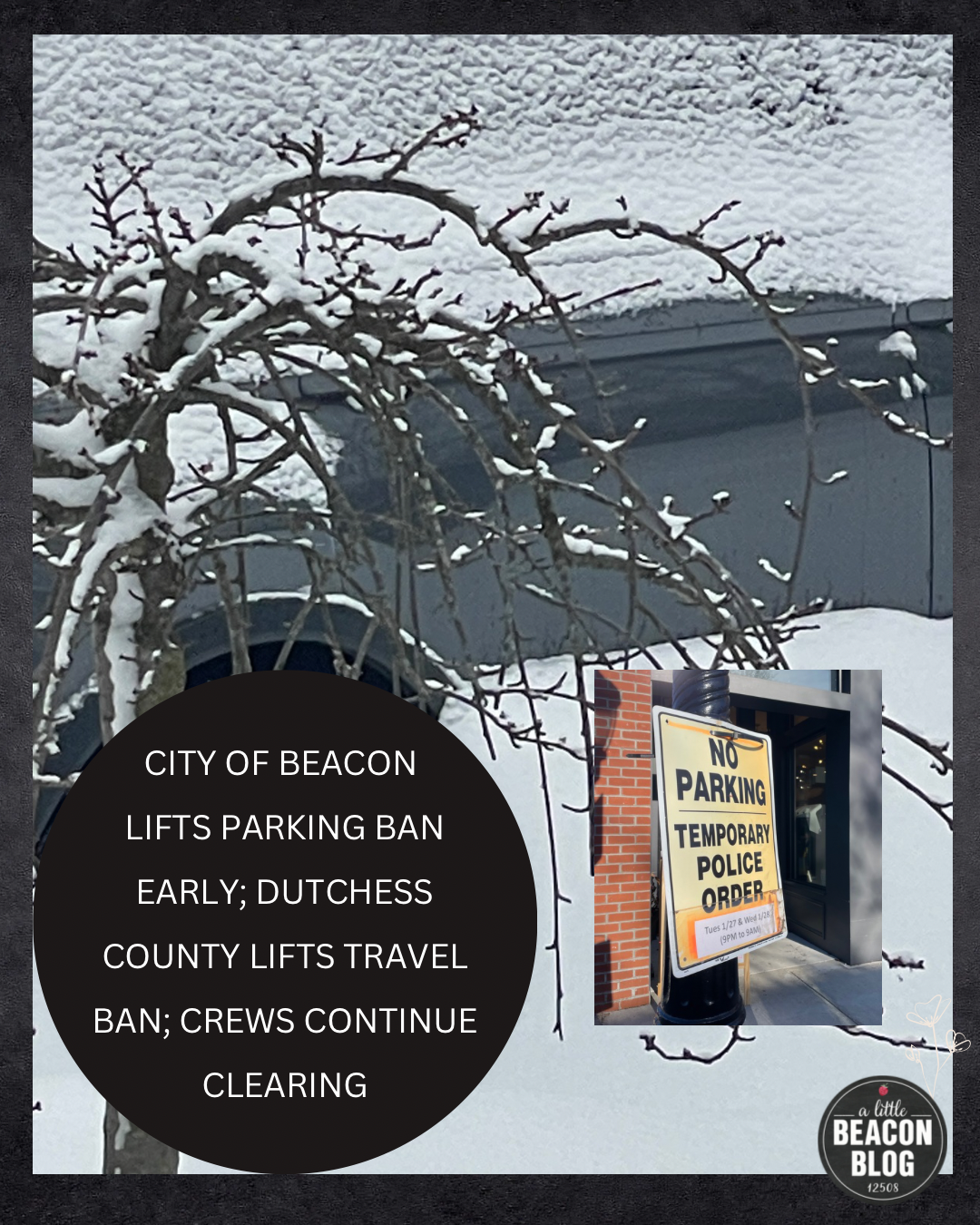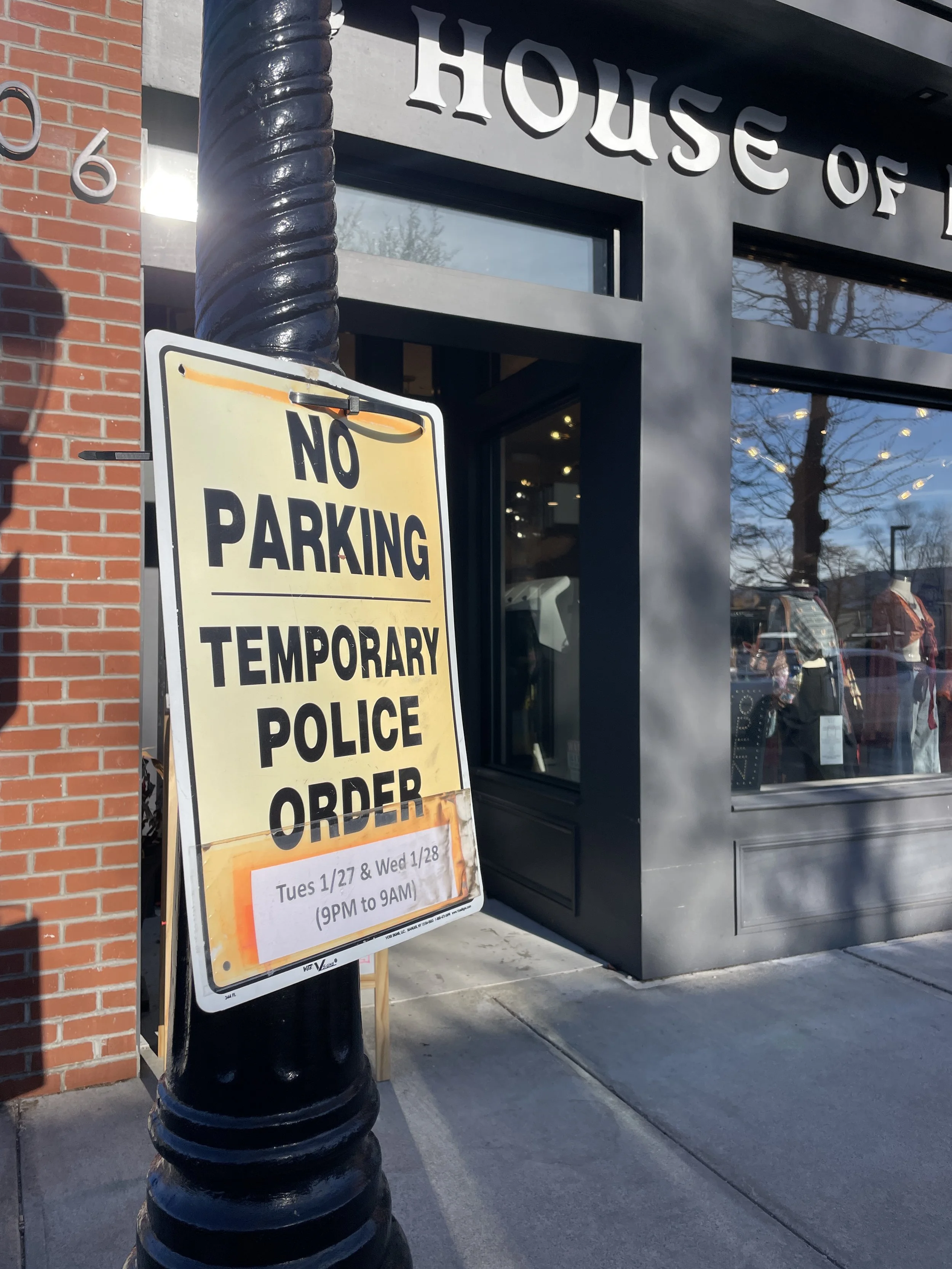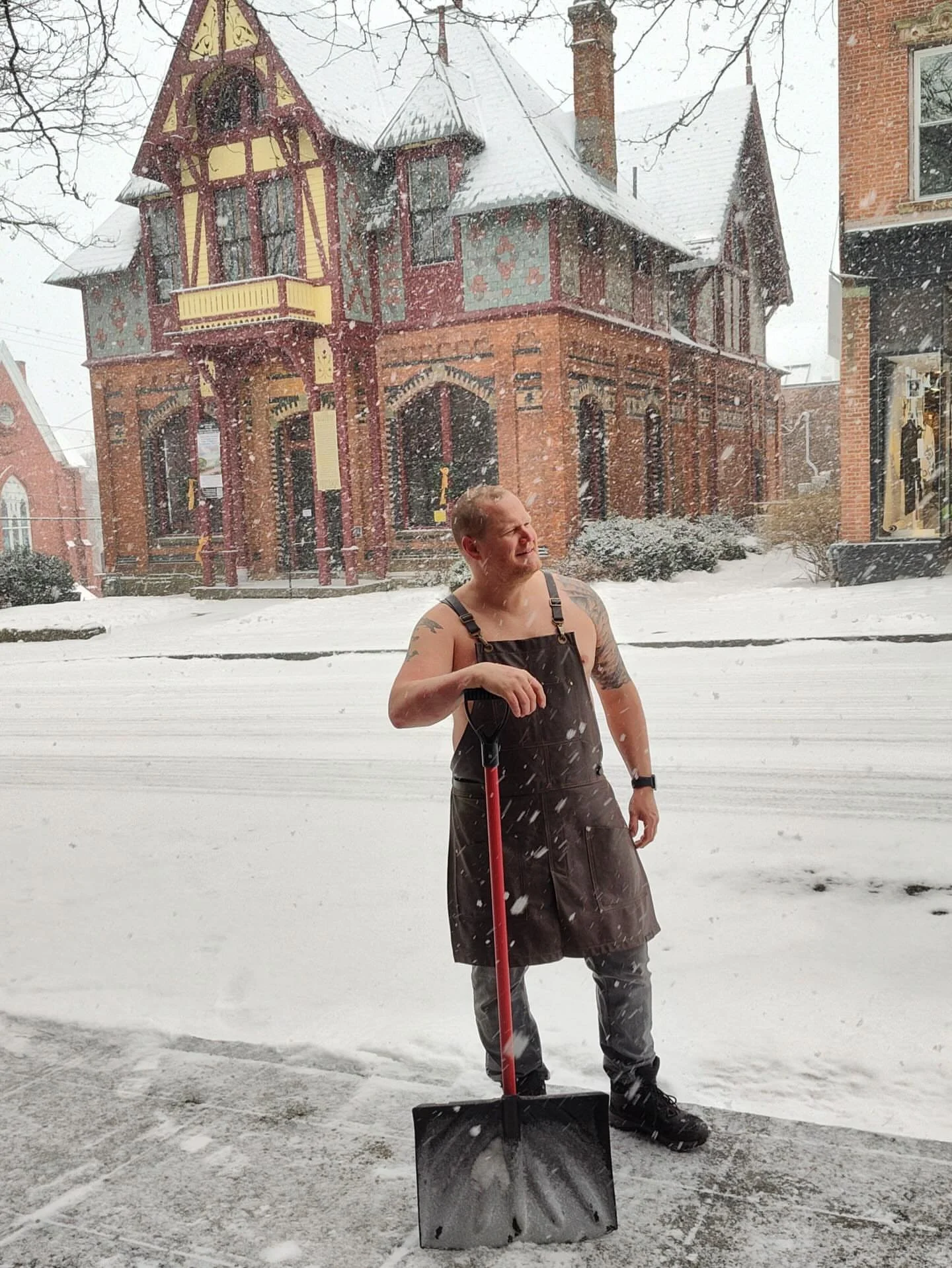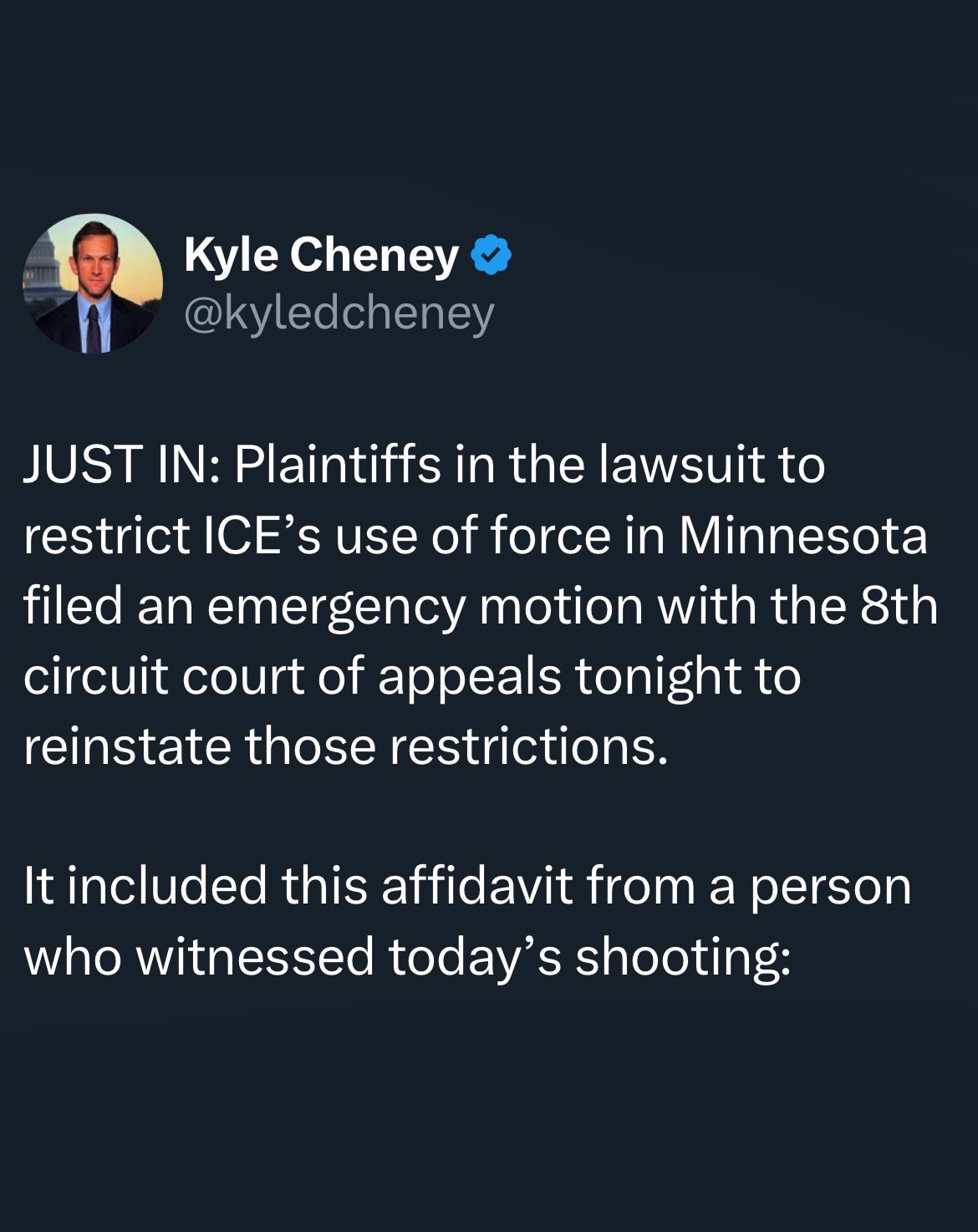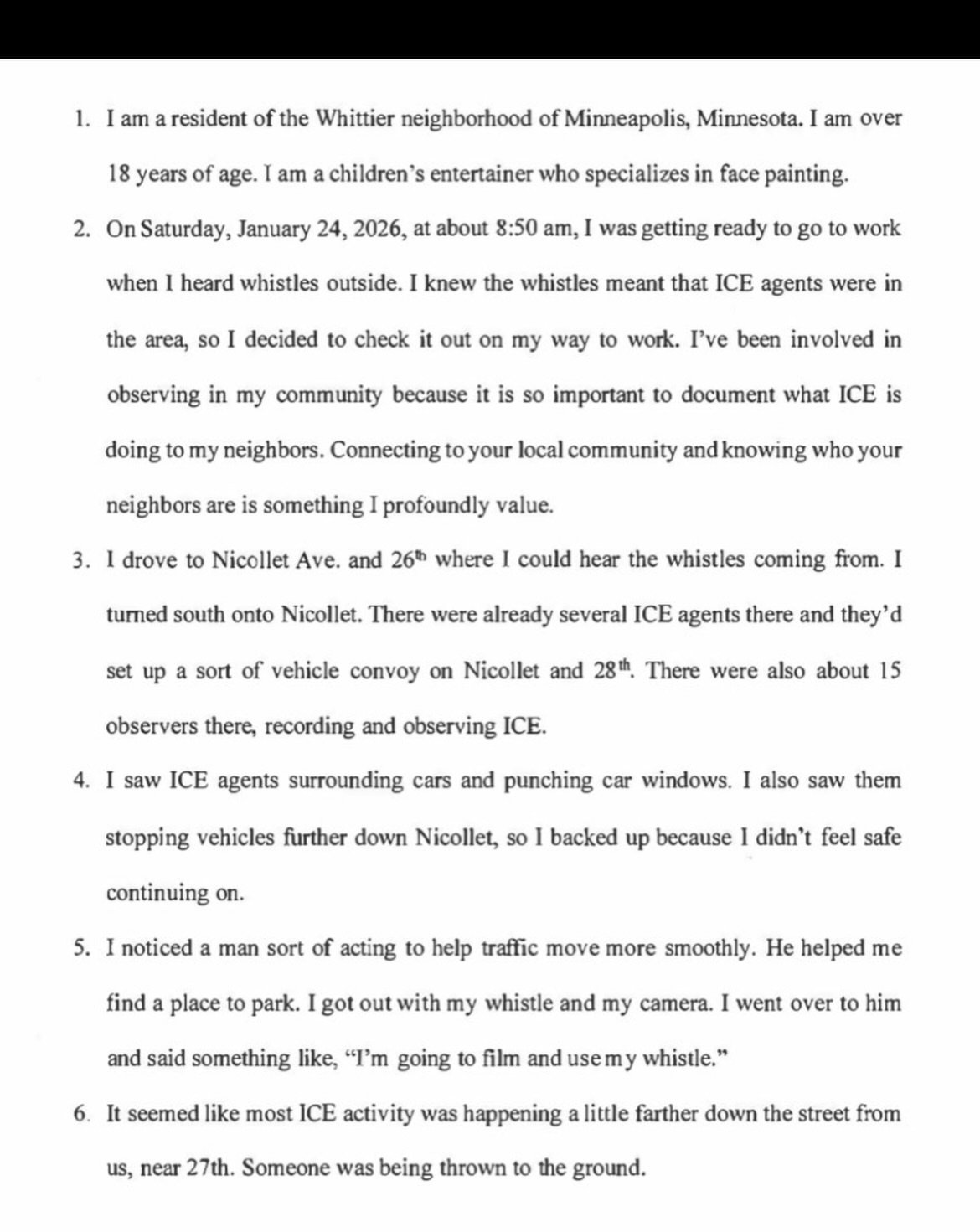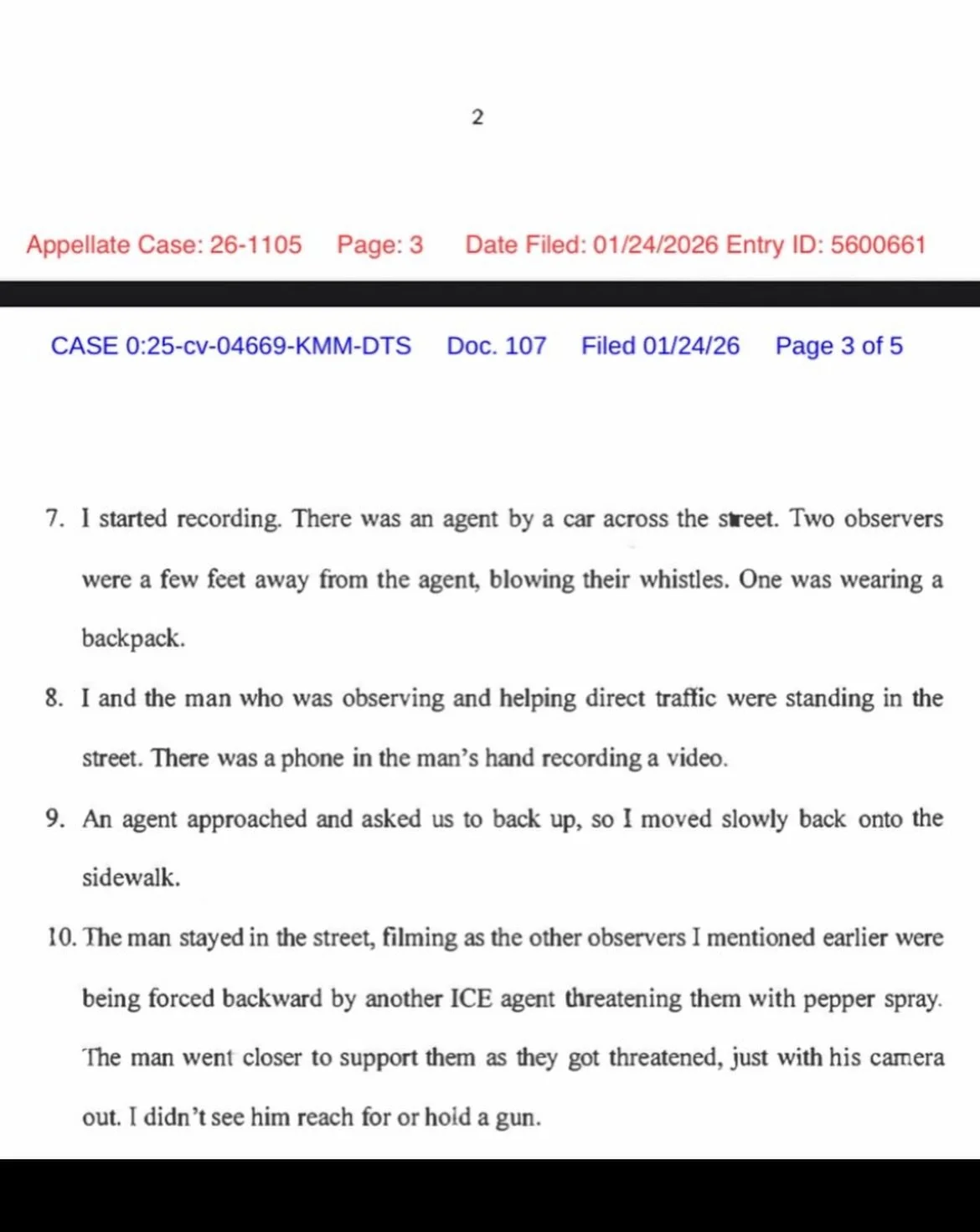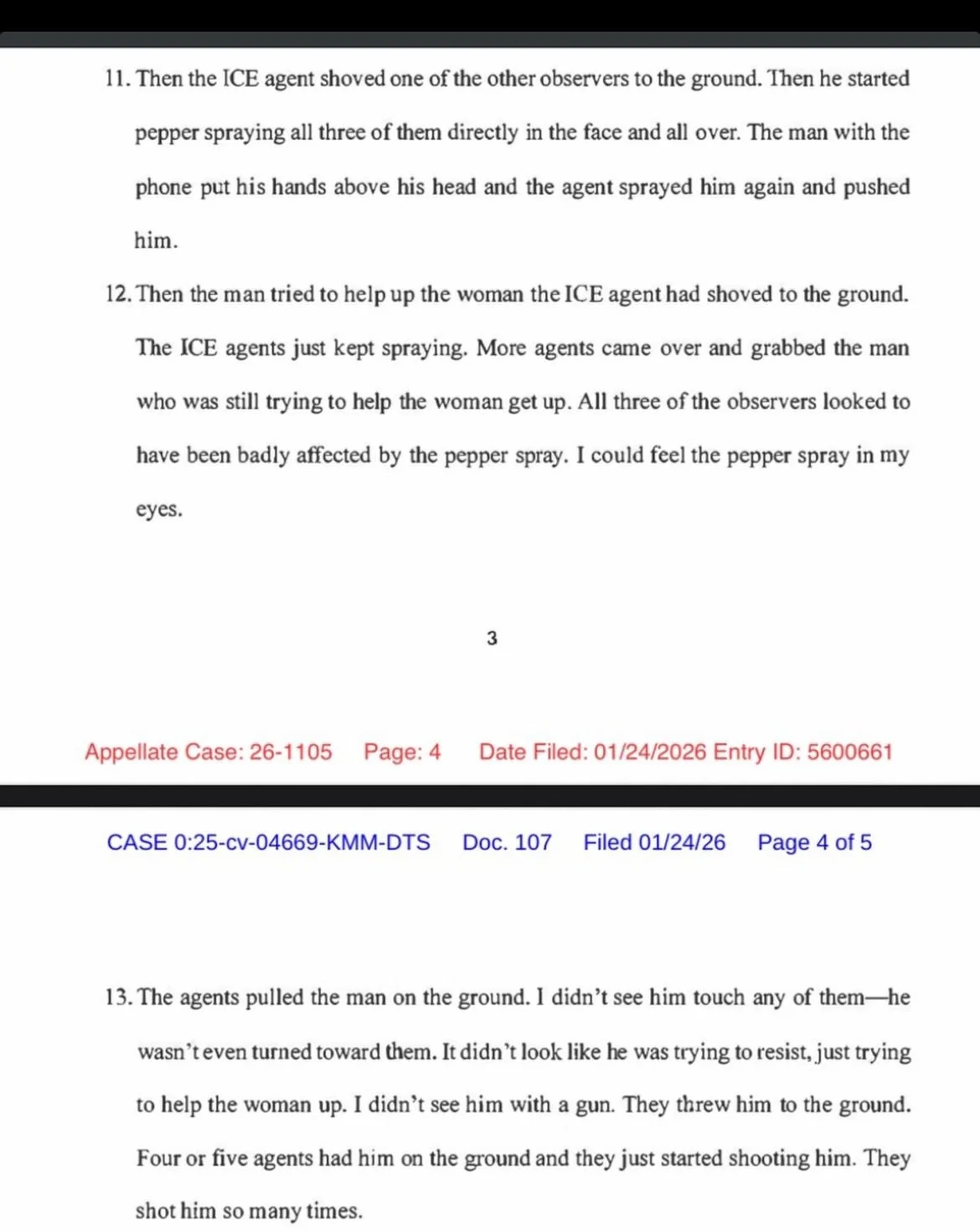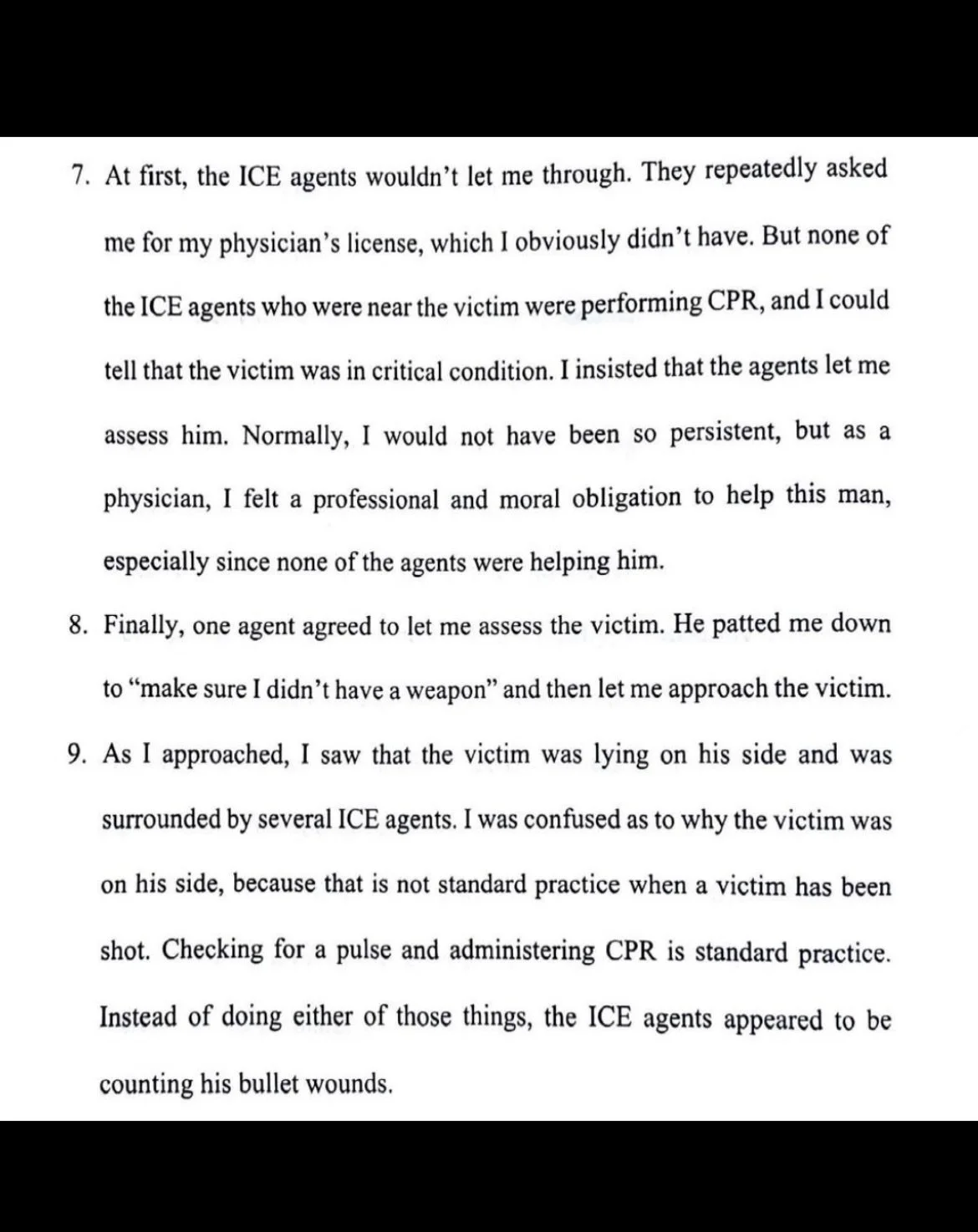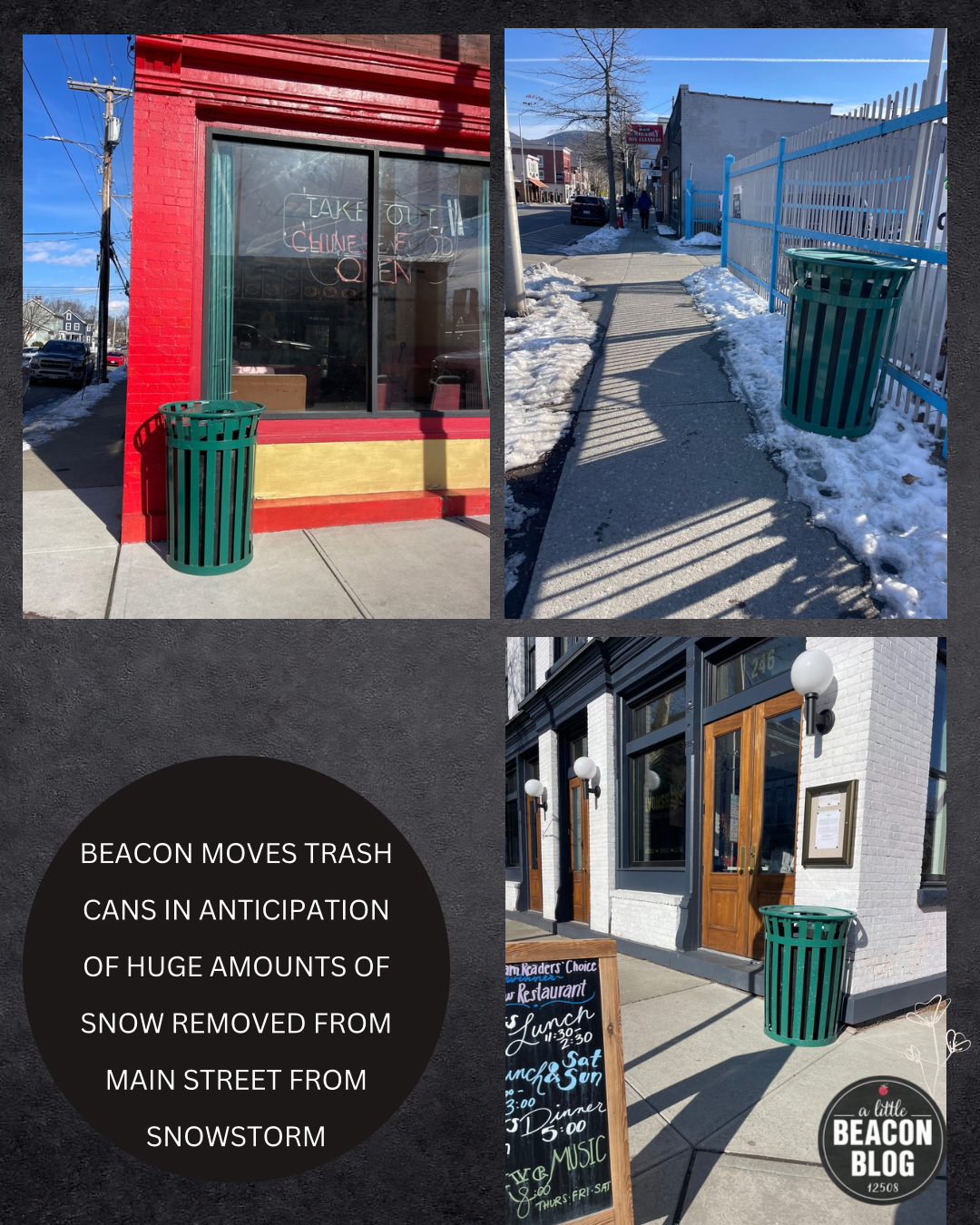VIDEO: Beacon High School Students Walk Out For National "ICE Out" Strike - The. Kids. Are. Not. Having It.
/VIDEO: The video of this march on January 30, 2026 National ICE Out Strike by over 100 Beacon High School Students is at the bottom of this article.
Friday, January 30th, 2026 was a national day of action known as “ICE Out,” where many people in the United States demonstrated actions demanding that ICE (Immigration and Customs Enforcement), part of the Department of Homeland Security (DHS) be dismantled and abolished. Student groups at the University of Minnesota including the Somali Student Association and Black Student Union, as well as national groups including Council on American-Islamic Relations (CAIR), Black Lives Matter, LA Tenants Union, Palestinian Youth Movement and the ANSWER Coalition, called for a “national shutdown,” which looked like “No Work. No School. No Shopping. Stop Funding ICE.”
In Beacon, NY, Beacon High School (BHS) student discussion of participation in the “ICE Out” allegedly started earlier in the week on Monday with the Beacon High School club Students For Civic Engagement (SCE) organizing. By Thursday day, however, student commitments hadn’t stuck yet.
Some Beacon business owners were only casually thinking about it, when one asked A Little Beacon Blog: “What are your thoughts on the National Strike?” to which ALBB answered: “I feel exhausted. To be quite honest. This is in the hands of the very rich CEOs. This feels like Palestine 2.0. I support anyone who is striking, and I understand for anyone who is not closing but supports humanity and the resistance movement. I don’t know what else to say.”
The Momentum Built For The “ICE Out” Movement in Beacon
Hours later, as the sun set on another day of school and business, Beacon businesses and some in Cold Spring began posting that they were shutting down for January 30th. Witch Hazel declared that they were accepting cash-only to avoid contributing to big banks, and would open their space to anyone who wanted to creatively express. New hair salon Chisel across the street declared they were shutting down (after missing work during the snow storm) and had rescheduled their appointments, to which their clientele agreed.
After investigating where the City of Beacon was putting all of their plowed snow, ALBB took to Instagram to make a quick video to report in that some businesses in Beacon were indeed shutting down to participate in the “ICE Out,” and to stay tuned for a report on where all of the plowed snow is going.
This simple video triggered a hailstorm of responses from Beacon MAGAs, and generated over 22,500 views. More and more businesses starting publishing their closure statuses.
Youth activity picked up in the social media threads of BHS students, where they started deciding if they were going to walk out or not. A social media post was made. Students For Civic Engagement (SCE) published to Instagram that they were walking out. Their only instructions: “WALKOUT TOMORROW!!!! Bring a coat”
It was official. The Beacon High School students were protesting.
The Planning
ALBB received requests from BHS students asking if an announcement could be made about their walkout. ALBB responded that we would seek confirmation first of any security details with Dr. Dwyer before posting anything, and emailed him that evening. Slogans for posters began being made, and chants written.
One parent told ALBB that they told their striking student that they would walk to pick them up instead of drive in order to avoid traffic or unexpected situations. The student responded: “Don’t worry about it. We’re walking to Main Street.” The parent asked: “Where are you going on Main Street?” to which the student replied: “We’re still figuring it out.”
And that was that.
The “Strike Eve” The Night Before
Doubters and supporters of human rights violations were filling online spaces in between, saying they would never shop from the striking businesses again.
Despite negative comments, the students opting to protest stayed strong and grew in numbers. “Some people told us that no one was going to come to our protest,” one student told ALBB. “That this protest wasn’t going to mean anything. Wouldn’t make a difference.”
One parent contacted ALBB, worried about consequences of the walkout action during school hours and debated if they should call the administration to give their child their consent in an excused absence. ALBB reached out to a civil rights expert to get guidance, who said: “The students can exercise their First Amendment right. You don’t need to call the school or say anything for several reasons: first, it may undermine your student’s action; and second, it may contribute to an argument that you made your student do it.”
The Morning Of The “ICE Out” Strike
Still more businesses and restaurants were shutting off their burners and going dark for the day. Beacon MAGAs were losing places to eat by the hour.
At 6:30am Friday morning, Dr. Dwyer sent his email to parents, explaining how the school would ensure the safety of the students who were walking out. ALBB turned around to amplify it before the school day started. That article launched another hailstorm of comments (over 690 comments at FB) from parents praising the kids, as well as naysayers. Hits to the article spiked to 4,000 over the course of the day.
This spike was the impact the Beacon High School students were having. This was why they were experiencing such pushback from some in the community. Because their walkout was working.
The Kids Are Not Having It
These Beacon kids are the kids who were shut in during COVID. In their COVID shutdowns, they got comfortable with technology real fast. They maintained connections to each other on social media platforms their parents hadn’t even heard of. Using tricks to track each other to maintain safety and arrival to mutual places of meetings, hang-outs and sporting events.
South Avenue elementary school students marching in the 2017 Spirit of Beacon Day Parade, serving as little reporters asking questions about Beacon’s history. ALBB’s Katie Hellmuth helped co-produce South Avenue’s parade that year, with the theme of roving reporters.
These are these are the kids whose parents marched in Black Lives Matter 2020, and slogged through Sanctuary City status debate meetings at City Council. They built elementary school floats for the Spirit of Beacon day parade, some of which were live-action scenes as live reporters.
These kids fight with each other, and fight for each other. They learned safe space language over the years from different mental heath programs and teachers and staff in the Beacon City School District, and are reminded to try to pull in a friend who is behaving wildly.
The March
“I want to thank everyone for being out here today. I know it’s really cold, and this is really last minute. But this is really important. You all are demonstrating your First Amendment right, and that is very important. Before we begin with anything, I want to take a moment of silence for the lives that have been lost at the hands of the ICE institution and its agents.”
By 11:45am Friday, BHS Security had assembled at the end of the school driveways as they do when school gets out on a regular day to help the flow of traffic at pickup.
At 12pm, students who opted to walk out did so. Some went to their cars to drive home, shouted “FUCK ICE!” and spun their wheels to burn the rubber of their tires as they waited in the driveway line to exit the school.
A larger number of kids gathered and stayed at the main entrance of the Beacon High School kiosk, while some parents waited to pick them up at the Athletic Department. The kids huddled around the flag pole as different administrators in school leadership came out to check on things.
One of the co-presidents of the Students for Civic Engagement (SCE) club, Melby Scher, gave a speech to fellow students gathered round before they left. She dedicated a moment of silence for those people killed by ICE so far, and who are known about, several of whom have died inside of ICE detention centers shortly after being kidnapped and deposited there. Those names include Luis Gustavo Núñez Cáceres, Geraldo Lunas Campos, Víctor Manuel Díaz, Parady La, Renee Nicole Good, Luis Beltrán Yáñez–Cruz, Heber Sánchez Domínguez, and Alex Pretti.
Melby said: “I want to thank everyone for being out here today. I know it’s really cold, and this is really last minute. But this is really important. You all are demonstrating your First Amendment right, and that is very important. Before we begin with anything, I want to take a moment of silence for the lives that have been lost at the hands of the ICE institution and its agents.”
“I want to remind everyone that we are all part of a broader movement right now. The movement of peace, empathy and love for our neighbors against a country that is currently filled with so much hatred. It is so important that you are here today, and I am proud of every single one of you, for being out here in the cold.”
“Lastly, I want to remind everyone that we are all part of a broader movement right now. The movement of peace, empathy and love for our neighbors against a country that is currently filled with so much hatred. It is so important that you are here today, and I am proud of every single one of you, for being out here in the cold.”
A loud cheer came from the students, and they embarked down the side path of the school, headed down Mattaewan. Parents who were there in cars to pick them up rerouted themselves to follow alongside the student marchers.
When the students reached Verplanck Avenue, they safely crossed onto North Cedar Street and continued down the sidewalk of the one-way street, which is the usual route home for several students. One of the leaders of the Students for Civic Engagement (SCE) club shouted directions to the students, saying “Road Safety!” and guided everyone onto the sidewalk. The students chanted all the way to Main Street, where they landed between Kumon Learning Center and Subway, then proceeded down Main Street all the way to Pohill Park.
During the march, the students defied naysayer comments who had declared: “They are going to go to the mall!” and “This is just another day off for teachers!” The student’s powerful chants carried throughout the City. Their young voices angry as they demanded “ICE OUT!” Cars supporting them with honks flocked around them throughout their descent down Main Street, past stores like Key Food, CareFull MD Urgent Care, Xin Xing, Butterhead Salad, House of Maxx, Witch Hazel, Lily & Marigold, and others. A few silent drivers gave them thumbs down, or stared blankly ahead. One man in a black van shouted his support, saying that he had no horn but wanted to honk.
When Geese Fly
During the beginning of the march, as the students descended down the front lawn of the Beacon High School, a flock of geese launched up out of the back grounds. The geese are on the school grounds every day. The symbolism was not lost with the sudden whoosh of wings as the geese took flight and formed into a pattern with the kids below. It was like nature was with them, guiding them.
As reflection from the day settled, a second symbolism took shape in the memory of the geese flying: the kids took flight, leaving the nest on their own. This was a hands-off protest. The kids were in charge. The parents were watching if they wanted. Honking if they wanted. The kids flew. They spoke. They landed back at the nest. Successfully. Ready for the next time they are needing to be heard. Because this isn’t over until ICE is abolished and brutality with impunity is held accountable.
For those who thought this national day of “ICE Out” action would have no impact…the Department of Justice released over 3 million pages of Epstein files.
